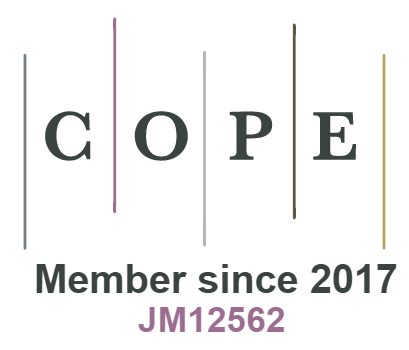Navigating the AI Landscape: Sectoral Insights on Integration and Impact
DOI:
https://doi.org/10.18034/ei.v12i1.688Keywords:
Artificial Intelligence, Machine Technology, Diverse Sectors, Education, Employment, ncome patternsAbstract
This study delves into the varied sentiments and attitudes prevalent across the different sectors related to integrating Artificial intelligence (AI). Understanding how sectors perceive and embrace these changes is crucial for informed decision-making and policy formulation as AI technologies continue to thrive in industries. Artificial intelligence is making waves in 2023 as businesses, consumers, and the government benefit from this technology, promising new opportunities, economic growth, and the transformation of different industries. There was so much propaganda surrounding artificial intelligence based on economic factors such as employment, education, income patterns, housing, and food security, and with time, these issues have been proven true or false. AI will have a broadly beneficial effect on society.
Downloads
References
Acemoglu, D. and Restrepo, P. (2017a). Robots and Jobs: Evidence from US Labor Markets. NBER Working Paper no. 23285. National Bureau for Economic Research. DOI: https://doi.org/10.3386/w23285
Acemoglu, D. and Restrepo, P. (2017b). Low-Skill and High-Skill Automation. Working Paper no. 17-12, MIT Department of Economics. DOI: https://doi.org/10.3386/w24119
Agrawal, A., Gans, J. S., & Goldfarb, A. (2019). Exploring the impact of artificial intelligence: Prediction versus judgment. Information Economics and Policy, 47, 1-6. DOI: https://doi.org/10.1016/j.infoecopol.2019.05.001
Amandolare, S., & Dvorkin, E. (2021). Preparing New Yorkers for the Tech Jobs Driving NYC’s Pandemic Economy. Center for an Urban Future.
Auda, Z. M., & Radhi, S. J. (2022). Artificial Intelligence and Evolution of the Global System. IPRI Journal, 22(1), 91-109. DOI: https://doi.org/10.31945/iprij.220105
Bamatraf, S., Amouri, L., El-Haggar, N., & Moneer, A. (2021). Exploring the Socioeconomic Implications of Artificial Intelligence from Higher Education Student’s Perspective. International Journal of Advanced Computer Science and Applications, 12(6). DOI: https://doi.org/10.14569/IJACSA.2021.0120641
Bellantuono, L., Palmisano, F., Amoroso, N., Monaco, A., Peragine, V., & Bellotti, R. (2023). Detecting the socioeconomic drivers of confidence in government with explainable Artificial Intelligence. Scientific Reports, 13(1), 839. DOI: https://doi.org/10.1038/s41598-023-28020-5
Chopra, R., Agrawal, A., Sharma, G. D., Kallmuenzer, A., & Vasa, L. (2023). Uncovering digitization’s organizational, environmental, and socioeconomic sustainability: evidence from existing research. Review of Managerial Science, 1-25. DOI: https://doi.org/10.1007/s11846-023-00637-w
De Prado, M. L. (2018). Advances in financial machine learning. John Wiley & Sons.
Dwivedi, P., Sarkar, A. K., Chakraborty, C., Singha, M., & Rojwal, V. (2023). Application of artificial intelligence on post-pandemic situation and lesson learned for prospects. Journal of Experimental & Theoretical Artificial Intelligence, 35(3), 327-344. DOI: https://doi.org/10.1080/0952813X.2021.1958063
Frey, C. B., & Osborne, M. A. (2017). The future of employment: How susceptible are jobs to computerization? Technological forecasting and social change, pp. 254–280. DOI: https://doi.org/10.1016/j.techfore.2016.08.019
Gerlich, M. (2023). Perceptions and Acceptance of Artificial Intelligence: A Multi-Dimensional Study. Social Sciences, 12(9), 502. DOI: https://doi.org/10.3390/socsci12090502
Grashof, N., & Kopka, A. (2023). Artificial intelligence and radical innovation: an opportunity for all companies? Small Business Economics, 61(2), 771-797. DOI: https://doi.org/10.1007/s11187-022-00698-3
Gries, T., & Naudé, W. (2018). Artificial intelligence, jobs, inequality, and productivity: Does aggregate demand matter? IZA DP no. 12005. DOI: https://doi.org/10.2139/ssrn.3301777
Hadley, J., (2020). Artificial Intelligence and Rising Inequality. Retrieved from: https://sites.rutgers.edu/.
Huhtamo, E. (2020). The Self-Driving Car: A Media Machine for Posthumans? Artnodes, (26), pp. 1–14. DOI: https://doi.org/10.7238/a.v0i26.3374
Joyce, K., Smith-Doerr, L., Alegria, S., Bell, S., Cruz, T., Hoffman, S. G., & Shestakofsky, B. (2021). Toward a sociology of artificial intelligence: A call for research on inequalities and structural change. Socius, 7, 2378023121999581. DOI: https://doi.org/10.1177/2378023121999581
Jungherr, A. (2023). Artificial Intelligence and Democracy: A Conceptual Framework. Social Media+ Society, 9(3), 20563051231186353. DOI: https://doi.org/10.1177/20563051231186353
Korinek, A., & Stiglitz, J. E. (2018). Artificial intelligence and its implications for income distribution and unemployment. In The economics of artificial intelligence: An agenda (pp. 349-390). University of Chicago Press. DOI: https://doi.org/10.7208/chicago/9780226613475.003.0014
Koumetio Tekouabou, S. C., Diop, E. B., Azmi, R., & Chenal, J. (2023). Artificial Intelligence Based Methods for Smart and Sustainable Urban Planning: A Systematic Survey. Archives of Computational Methods in Engineering, 30(2), 1421-1438. DOI: https://doi.org/10.1007/s11831-022-09844-2
Levinson, J., Askeland, J., Becker, J., Dolson, J., Held, D., Kammel, S., ... & Thrun, S. (2011, June). Towards fully autonomous driving: Systems and algorithms. In 2011 IEEE Intelligent Vehicles Symposium (IV) (pp. 163-168). IEEE. DOI: https://doi.org/10.1109/IVS.2011.5940562
Martins, R. M., & Gresse von Wangenheim, C. (2023). Teaching Computing to Middle and High School Students from a Low Socioeconomic Status Background: A Systematic Literature Review. Informatics in Education. DOI: https://doi.org/10.15388/infedu.2024.01
Meng, C., Juanatas, R., & Niguidula, J. (2023). Influence and Prospect of Artificial Intelligence on the Development of Cultural Industry. In SHS Web of Conferences (Vol. 155, p. 03026). EDP Sciences. DOI: https://doi.org/10.1051/shsconf/202315503026
Nallamothu, P. T., & Cuthrell, K. M. (2023). Artificial Intelligence in Health Sector: Current Status and Future Perspectives. Asian Journal of Research in Computer Science, 15(4), 1-14. DOI: https://doi.org/10.9734/ajrcos/2023/v15i4325
Nemorin, S., Vlachidis, A., Ayerakwa, H. M., & Andriotis, P. (2023). AI hyped? A horizon scan of discourse on artificial intelligence in education (AIED) and development. Learning, Media and Technology, 48(1), 38-51. DOI: https://doi.org/10.1080/17439884.2022.2095568
Nilsson, N. J. (2009). The quest for artificial intelligence. Cambridge University Press. DOI: https://doi.org/10.1017/CBO9780511819346
Nosova, S. S., Norkina, A. N., & Morozov, N. V. (2023). Artificial Intelligence and the Future of the Modern Economy. Инновации и инвестиции, (1), 240-245.
NYC CTO., (2021). AI Strategy. https://www.nyc.gov/assets/cto/downloads/ai-strategy/nyc_ai_strategy.pdf
NYC Report. (2021). The New York City Artificial Intelligence Primer. https://www.nyc.gov/assets/cto/downloads/ai-strategy/nyc_ai_primer.pdf
Obermeyer, Z., Powers, B., Vogeli, C., & Mullainathan, S. (2019). Dissecting racial bias in an algorithm used to manage the Health of populations. Science, 366(6464), 447–453. DOI: https://doi.org/10.1126/science.aax2342
Olander. J., and Flagg, M., (2020). AI Hubs in the United States. Georgetown CSET. https://cset.georgetown.edu/publication/ai-hubs-in-the-united-states/ DOI: https://doi.org/10.51593/20200006
Russell, S. J., & Norvig, P. (2010). Artificial intelligence is a modern approach. London.
Ruvalcaba-Gomez, E. A., & Cifuentes-Faura, J. (2023). Analysis of the perception of digital government and artificial intelligence in the public sector in Jalisco, Mexico. International Review of Administrative Sciences, 00208523231164587. DOI: https://doi.org/10.1177/00208523231164587
Sanina, A., Balashov, A., & Rubtcova, M. (2023). The socioeconomic efficiency of digital government transformation. International Journal of Public Administration, 46(1), 85-96. DOI: https://doi.org/10.1080/01900692.2021.1988637
Sanni, M. R. (2023). Technological Challenges of Accounting as a Tool for Socioeconomic Development in Nigeria and the Way. Nigerian Journal of Management Sciences, 24(1a).
Sartori, L., & Theodorou, A. (2022). A sociotechnical perspective for the future of AI: narratives, inequalities, and human control. Ethics and Information Technology, 24(1), 4. DOI: https://doi.org/10.1007/s10676-022-09624-3
Scantamburlo, T., Cortés, A., Foffano, F., Barrué, C., Distefano, V., Pham, L., & Fabris, A. (2023). Artificial Intelligence across Europe: A Study on Awareness, Attitude, and Trust. arXiv preprint arXiv:2308.09979.
Sitiris, M., Busari, S. A., Sawari, M. F. M., & Zaim, M. A. (2023). Financing the Development of Artificial Intelligence Maid: An Analysis of Pertinent Fiqhi Issues. Journal of Fatwa Management and Research, 28(3), 21-40. DOI: https://doi.org/10.33102/jfatwa.vol28no3.548
Sumathi, S., Manjubarkavi, S., & Gunanithi, P. (2023). 12 Ethnography and Artificial Intelligence. Ethnographic Research in the Social Sciences, 13. DOI: https://doi.org/10.4324/9781003392774-15
Ugliotti, F. M., Osello, A., Daud, M., & Yilmaz, O. O. (2023). Enhancing Risk Analysis toward a Landscape Digital Twin Framework: A Multi-Hazard Approach in the Context of a Socioeconomic Perspective. Sustainability, 15(16), 12429. DOI: https://doi.org/10.3390/su151612429
UNEVOC. (2021). Understanding the impact of artificial intelligence on skills development, Retrieved from: https://files.eric.ed.gov/fulltext/ED612439.pdf.
Wach, K., Duong, C. D., Ejdys, J., Kazlauskaitė, R., Korzynski, P., Mazurek, G., & Ziemba, E. (2023). The dark side of generative artificial intelligence: A critical analysis of controversies and risks of ChatGPT. Entrepreneurial Business and Economics Review, 11(2), 7-24. DOI: https://doi.org/10.15678/EBER.2023.110201
Wakabayashi, D. (2018). Self-Driving Uber Car Kills Pedestrian in Arizona, Where Robots Roam. The New York Times.
Wing, R. (2023). Intelligently Integrating Artificial Intelligent Agents into Economic and Social Systems (Doctoral dissertation, State University of New York at Binghamton).
Wörsdörfer, M. (2023). The EU’s artificial intelligence act: an ordoliberal assessment. AI and Ethics, 1-16. DOI: https://doi.org/10.1007/s43681-023-00337-x
Downloads
Published
Issue
Section
License
Copyright (c) 2024 Ashish K Saxena

This work is licensed under a Creative Commons Attribution-NonCommercial 4.0 International License.
Engineering International is an Open Access journal. Authors who publish with this journal agree to the following terms:
- Authors retain copyright and grant the journal the right of first publication with the work simultaneously licensed under a CC BY-NC 4.0 International License that allows others to share the work with an acknowledgment of the work's authorship and initial publication in this journal.
- Authors are able to enter into separate, additional contractual arrangements for the non-exclusive distribution of the journal's published version of their work (e.g., post it to an institutional repository or publish it in a book), with an acknowledgment of its initial publication in this journal. We require authors to inform us of any instances of re-publication.









